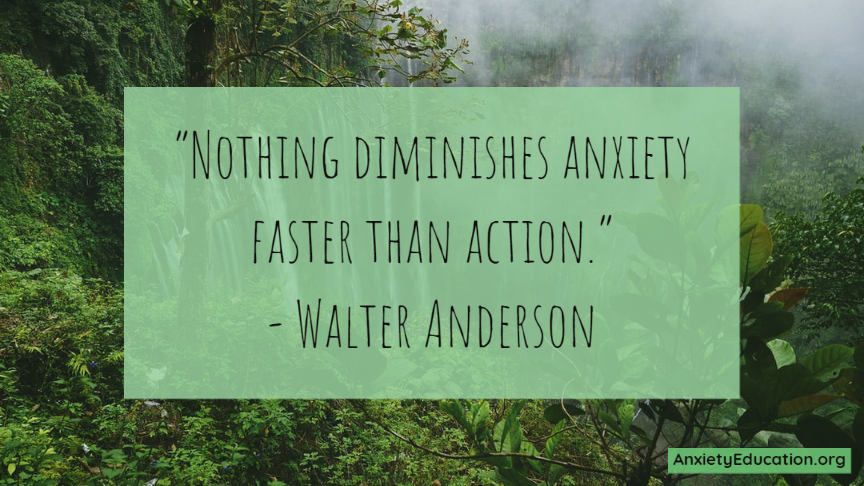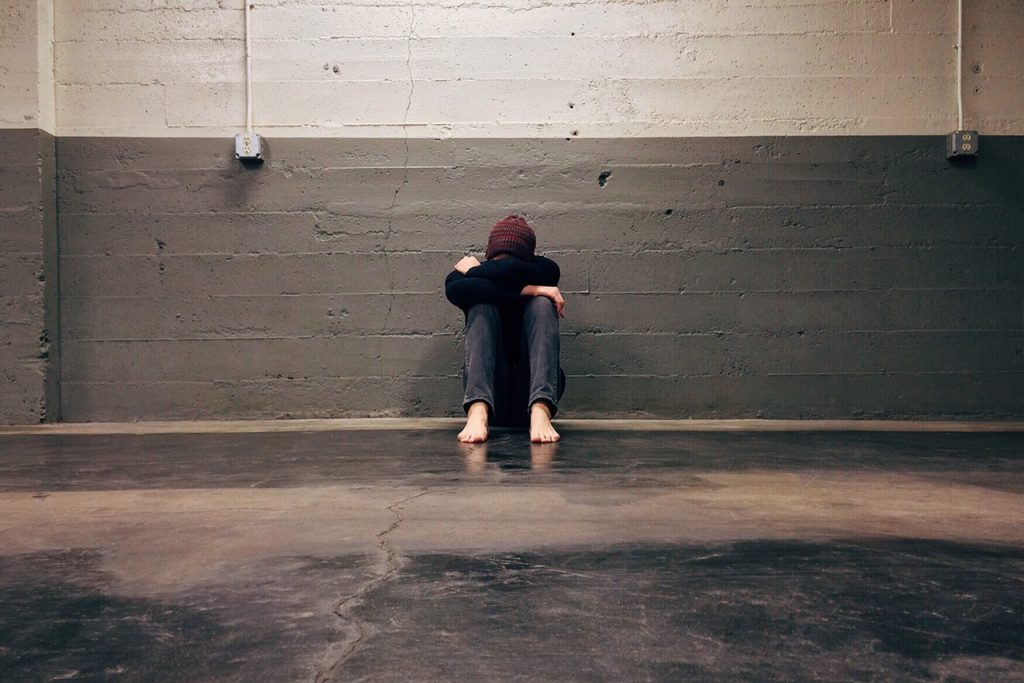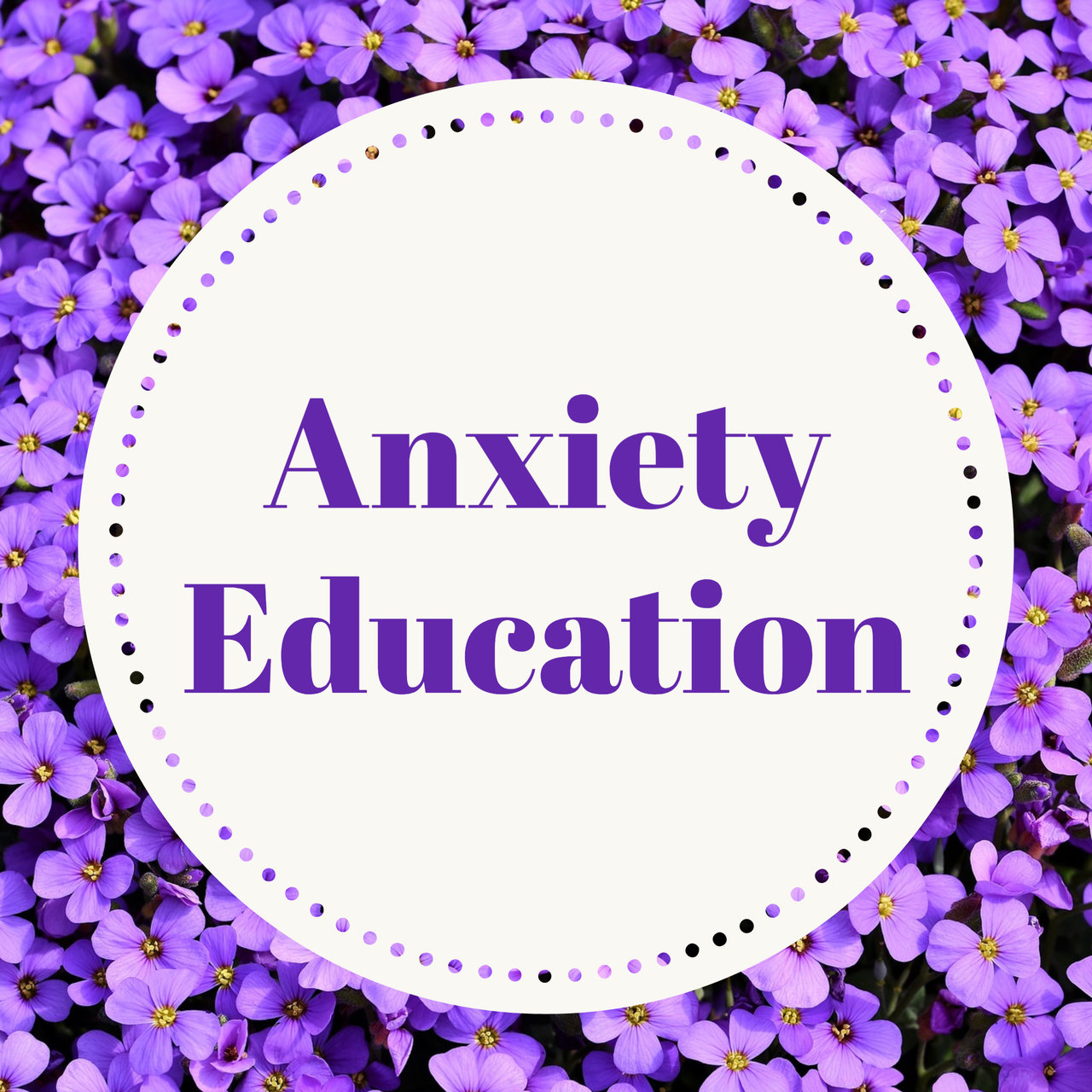
The Physical Symptoms of Anxiety and Self-Care
“Just get over it; it isn’t real. It’s all in your head.”
Many people who suffer from anxiety have heard something like this before from well-meaning but misinformed friends and family. However, the physical symptoms of anxiety are very real and can affect nearly every area of a person’s life, making anxiety crippling.
Anxiety can have a person feeling nervous or uncertain about an ordinary, everyday situation. Almost everyone has felt anxious to some extent at some point in their life. For example, think back to your first presentation in middle school when you stood in front of the entire classroom with your legs shaking. Remember feeling nervous the first time you had to present a PowerPoint in the big meeting at work. Though you may have been mentally aware that things would work out fine by the end of the day, your body still reacted to the stress of the moment by causing your limbs to shake, your palms to grow sweaty, and your stomach to turn with sudden nausea.

The human body reacts to the state of the mind in very real, sometimes life-stopping ways. On occasion, anxiety is normal. It is a natural response to stress. However, if the symptoms last for a long time or greatly interfere with progress in your life, it may be a more serious anxiety disorder. Even in the most severe cases, anxiety can be managed, and life can be enjoyed when one devotes some energy into self-care practices.
Types of Anxiety
There are many different types of anxiety. Some of the most well-known types are panic disorders, generalized anxiety disorder (GAD), post-traumatic stress syndrome, social anxiety, phobias, and obsessive-compulsive disorder (OCD). First, a panic disorder involves sudden episodes of intense fear, or panic attacks, which temporarily incapacitate the sufferer. Broadly, generalized anxiety disorder encompasses most anxiety cases, involving symptoms of worry, restlessness, fatigue, fragmented focus, etc. for a period of over six months. These symptoms are present most of the time, in a majority of minor situations. In contrast, post-traumatic stress syndrome is an anxiety disorder resulting from the experience of a traumatic event or series of events. The sufferer will usually experience flashbacks, nightmares, avoidance tactics, and potentially suicidal or self-harming thoughts.
More commonly, social anxiety presents when an individual dreads or avoids social interactions due to a fear of rejection, embarrassment, judgment, or offending others. Similarly, specific phobias are irrational fears of objects or situations, although they may be causing harm. Lastly, obsessive-compulsive disorder is a type of anxiety that manifests in the presence of disorder or uncertainty. A person with OCD may experience obsessions with organization or recurring thoughts of uncertainty about details of themselves or their lives. Repetitive behaviors are a common symptom of this disorder, such as excessive hand-washing or rearranging items.
The Physical Symptoms of Anxiety
How does anxiety affect the body? Like many other processes in the body, mental and physical well-being are directly proportional. When one suffers, the other will likely suffer too. A mind riddled with worries and plagued by fears will cause negative feedback from the body. Some of the physical symptoms of anxiety are nausea, digestive issues, migraine headaches, trouble falling or staying asleep, chronic fatigue, shortness of breath, sweating, rapid pulse, weakness, trembling limbs, and tightness in the muscles leading to pain or cramps. For instance, severe anxiety can cause disabling panic attacks in response to sudden or surprising environmental factors or memories.
In the event of a panic attack, one might feel a tightness or aching in the chest, feel lightheaded and/or dizzy, have heatwaves or chills, have a sudden or growing fear of dying, experience trouble breathing or have the sensation of choking, grow numb or feel tingling in some parts of the body, or lose awareness of his or her location.
Anxiety is the body’s natural response to stress: the built-in adrenaline response to a fear stimulus. However, some of the physical symptoms of this fear response can do more harm than good. For example, overly alert, tense muscles can cause painful cramps or spasms, such as when someone nervously clenches their fists. Additionally, rapid breathing is a natural reaction to stress as the body attempts to supply more oxygen to the muscles in case action needs to be taken. This, however, can lead to light-headedness and falls, or hyperventilation, which may trigger greater anxiety. If someone finds themselves frequently in a state of anxiety or high stress, they may find themselves with negative long-term effects on their health from the hormones released during these tense situations.
Do I Have an Anxiety Disorder?
If you see physical symptoms caused by your emotional health, it may be a good idea to find a therapist. Furthermore, anxiety can make it difficult to live positively through each day due to a barrage of negative thoughts. Most importantly, there should always be at least one person you feel you can be honest with about your emotions. Failing to release negative thoughts and bottling your emotions can cause serious harm to your health. It has been said that the gut is the second brain of the body. As such, digestion is one of the first systems that issues with mental health can affect. When stress is not dealt with, the brain releases hormones. These hormones trigger an inflammatory response in certain tissues in the body. In most cases, it starts in the lining of the intestines. This is how stress can cause bloating and other health issues.
Sometimes, your symptoms are linked to specific events, such as a flare up of anxiety whenever you think about a traumatic event. It can also happen when you visit a place that makes you feel fearful or uncomfortable. you may have an anxiety disorder caused by unresolved fears. A therapist or counselor will be able to use screening techniques to determine if anxiety is, in fact, the cause of whatever symptoms you may present with. They can then guide you through a pattern of healthy thought processes related to these specific memories or events. In this way, you will be able to form healthy habits of dealing with stresses as they arise.
Holding onto stress and fear allows them to fester in your mind and prompt anxiety. There are always options available for getting help. When it comes to anxiety, it is always better to seek help sooner than too late.
Natural Treatments for Managing Anxiety
Anxiety increases your risk of suffering from health problems. Fortunately, there are things you can do to improve your mental health and decrease this risk.
- Getting enough sleep is crucial to maintaining a healthy mindset.
- Be sure to drink enough water and eat well-balanced meals on a regular basis. This can encourage a healthy balance in your body.
- Avoid alcohol, caffeine, and tobacco, as they can increase anxiety and cause a negative response to stress. Such substances can also be damaging to some structures in the body. This could reflect poorly on your mental health.
- Taking time out to rest and relax can significantly reduce the effect of the stress of the day. It can be as simple as stepping out for five minutes at work to clear your head. You could also begin meditating in your bedroom to relax. Distancing yourself for short periods of time can help with managing anxiety. Exercise is a great way to reduce stress. It can also boost energy, and clear your head of negative thoughts and emotions.
Holistic Options for Reducing Stress and Managing Anxiety
Certain natural remedies such as CBD and kratom can work to reduce stress and anxiety. Also, they can relieve some of the physical symptoms of anxiety such as muscle tension and irregular sleep patterns. Such holistic herbal remedies may not be approved by the FDA due to insufficient clinical testing. However, many people report positive results and improvements in mental health after using these products. It is always wise to check with your healthcare provider before self-medicating. Certain drugs and herbs can have different effects for different people.

Learning How to Manage The Physical Symptoms of Anxiety Can Help You Take Back Control of Your Life
Overall, anxiety can be manageable. If you set your mind to it, you can recover from negative thought patterns that have been holding you back. Indeed, by regularly implementing self-care practices, you can reduce anxiety and deal with stresses that arise in a healthy manner. Open up to people you trust. Surrounding yourself with supportive people can greatly reduce the burden of stress in your life. Having people who know about your struggle can ensure that you have the emotional support you need. Anxiety is not an identity, but a natural human reaction common to everyone, and it can be managed.
